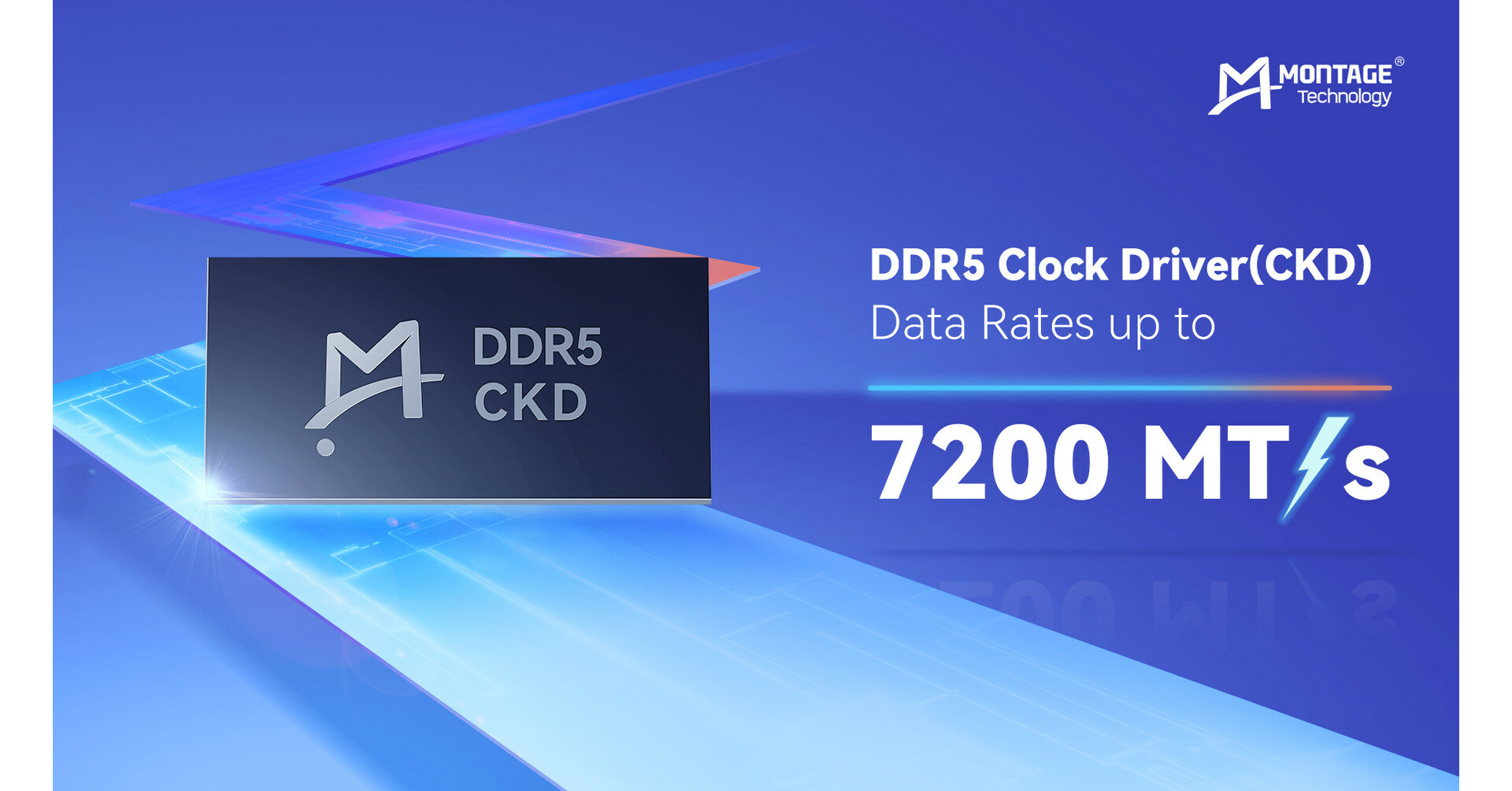Montage Technology, a leading data processing and interconnect IC company, has successfully trialed the production of its 1st-generation DDR5 Clock Driver (CKD) chips for next-generation client memory. This new product is designed to improve the speed and stability of memory data access to keep up with the increasing CPU operating speed and performance.
In the past, clock driver functionality was integrated into Registering Clock Driver (RCD) chips used on server RDIMM or LRDIMM modules. However, as data rates exceed 6400 MT/s in the DDR5 era, the clock driver has become essential for client memory.
Montage’s CKD chip is primarily used on DDR5 client memory modules such as CUDIMM, CSODIMM, and CAMM. It buffers clock signals between the client central processor and DRAM to improve the integrity and reliability of high-speed clock signals. The chip complies with the JEDEC DDR5CKD01 specification, supports data rates up to 7200 MT/s, and offers dual-sided bus address access. It also supports I²C and I3C interfaces and can be configured to match various DIMM network topologies while reducing power consumption by disabling unused output signals.
Mr. Stephen Tai, President at Montage Technology, emphasized the growing demand for higher data rate DDR5 memory with the advancement of AI technology. He highlighted Montage’s industry-leading delivery of the DDR5 1st-generation CKD chip and expressed a commitment to ongoing collaboration with ecosystem partners to drive DDR5 memory development.
Montage is currently collaborating closely with mainstream client CPU and memory manufacturers to provide mass shipments of DDR5 CKD chips to memory vendors. For more information about the CKD chips, interested parties can visit www.montage-tech.com/Memory_Interface/M88DR5CK01.
Montage’s CKD chip is a game changer in next generation client memory as it will enable faster and more stable data access than ever before


